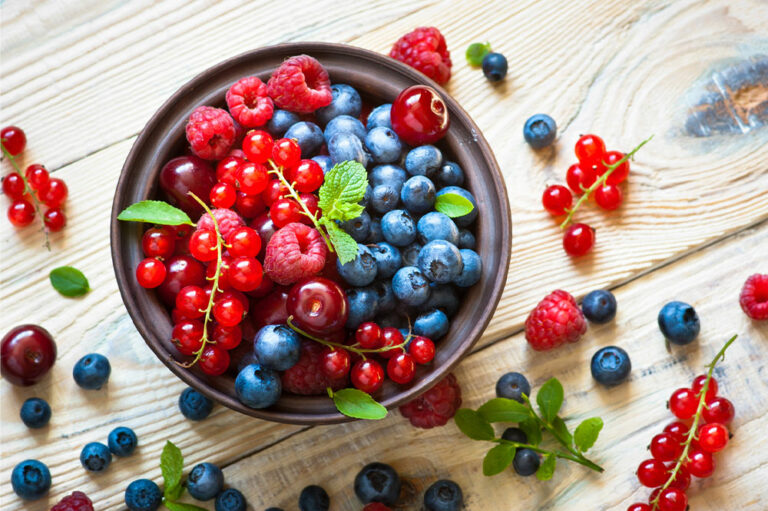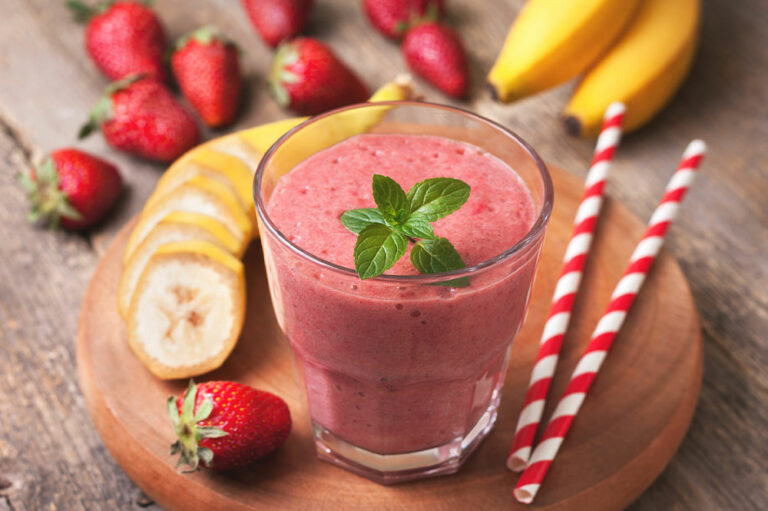Bad breath or halitosis can often be troublesome when it comes to oral freshness. The primary cause is usually poor oral hygiene. Other probable factors, like underlying health issues, can contribute to this issue. However, there are natural solutions found in everyday foods that provide an alternative to pharmaceutical remedies. Adding these foods to the routine can help improve overall health and gut microbiota that can help fight bad breath.
Apples
Apples are a remarkable natural aid in the battle against bad breath. Their high water content stimulates saliva production, aiding in the rinsing of the mouth. Moreover, the gentle abrasiveness of apples helps minimize the buildup of plaque. Additionally, malic acid actively encourages saliva production while maintaining an optimal pH balance within the oral environment. Whether enjoyed as a convenient and refreshing snack or added to salads, the satisfying crunch of apples promotes oral health.
Carrots
Packed with beta-carotene and fiber, carrots are ideal for maintaining oral hygiene. The act of chewing on raw carrots not only stimulates saliva flow but also neutralizes acidity, reducing the risk of bacterial growth. Essentially, carrots serve as natural cleansers, fortifying oral health. One can enjoy carrot sticks as a refreshing snack or integrate them into salads and soups.
Celery
With its crisp texture and high water content, celery is valuable to any oral hygiene routine. It promotes saliva production and aids in removing bacteria and leftover food particles. Furthermore, its fibrous structure acts as a natural dental floss, adeptly cleaning between teeth and along the gum line.
Cucumbers
Cucumbers offer a low-calorie option that successfully combats terrible breath. Their high water content fosters saliva production, reinforcing oral cleansing. Moreover, with their mild alkalinity, cucumbers contribute to maintaining an optimal pH level within the mouth. One can elevate culinary endeavors with cucumber slices in salads and sandwiches or enjoy them as a standalone snack.
Yogurt
Yogurt, a probiotic-rich dairy delight, is a cornerstone in maintaining sound oral health. The live cultures it harbors bolster a robust gut microbiome, facilitating digestion and minimizing the likelihood of toxic gases escaping through the oral cavity. One can amplify its appeal by introducing fruits, nuts, or a drizzle of honey.
Kefir
Like yogurt, kefir, a fermented milk product, boasts an abundance of beneficial bacteria that underpin a healthy digestive system. By nurturing a balanced gut microbiome, kefir indirectly contributes to achieving fresher breath. Incorporate kefir into daily meals in its unadulterated form, as a base for smoothies, or as an ingredient in salad dressings, unlocking its potent probiotic potential.
Kimchi
Kimchi, a quintessential Korean fermented dish, emerges as a potent source of probiotics. Its live cultures fortify a harmonious gut environment, diminishing oral malodors’ potential. One can savor the rich flavors of kimchi as a delectable side dish or include it in an array of recipes for a probiotic-powered culinary experience.
Sauerkraut
Sauerkraut, or fermented cabbage, constitutes another probiotic-rich gem. It maintains digestive health while concurrently contributing to better breath. One can elevate culinary creations by introducing sauerkraut as a tangy topping to salads and sandwiches or relish it as a standalone side dish.
Green tea
Green tea is celebrated for its abundance of health benefits, including its ability to combat bad breath. Packed with antioxidants, notably polyphenols, it aids in removing sulfur compounds, significant contributors to foul breath. One can habitually swap out regular tea or coffee for green tea after meals. By doing so, one not only refreshes one’s breath but also fortifies one’s overall oral health.
Lemons
Despite their reputation for tartness, lemons are unlikely allies in the fight against bad breath. Their high vitamin C content encourages saliva production and neutralizes acidity while effectively cleansing the mouth. It’s essential to be cautious, as their high acidity can potentially erode tooth enamel. Mix a few drops of lemon juice into a glass of water and swish it around the mouth to invigorate breath. Remember to refrain from direct contact with the teeth to safeguard enamel health.
Oranges
Oranges, much like lemons, are rich in vitamin C, making them powerful allies against bad breath. They stimulate saliva production, actively participating in the mouth’s natural cleansing. One can relish the lusciousness of fresh oranges as a snack or seamlessly integrate them into the daily fruit consumption routine.
Pineapples
Besides being delicious, pineapples also have natural breath-freshening properties. Pineapple contains an enzyme called bromelain, which has anti-inflammatory and antimicrobial properties. This enzyme helps break down food particles and prevents bacteria from growing in the mouth. You can enjoy the tropical taste of fresh pineapple or drink a refreshing smoothie to freshen your breath.
Berries
Berries, such as strawberries, blueberries, or raspberries, are rich sources of antioxidants, including vitamin C. They help to prevent bad breath by creating a healthy environment in the mouth. Including various berries in your daily fruit intake is recommended, either as standalone snacks, with cereal, or blended into smoothies for a refreshing drink.
Parsley
Parsley, enriched with chlorophyll, emerges as a natural breath freshener. Chlorophyll’s deodorizing properties nullify potent odors, rendering it an invaluable addition to one’s oral hygiene arsenal.
Cinnamon
Cinnamon is not just a delicious spice but has many benefits beyond adding flavor. Its essential oils contain antimicrobial properties that can help fight harmful bacteria and fungi. Additionally, the aroma of cinnamon can be a sensory delight, making it a treasure trove for the senses. These oils actively combat bacteria within the mouth, effectively reducing the likelihood of bad breath.
Mint
Courtesy of its menthol content, Mint stands as a quintessential breath freshener—this natural compound ushers in a cooling sensation, masking undesirable odors with remarkable efficacy. One can savor the refreshing experience of chewing on fresh mint leaves or savor mint-infused beverages as a swift and effective breath refresher.
Fennel seeds
Fennel seeds, celebrated for their aromatic and digestive properties, also possess breath-freshening capabilities. Chewing on fennel seeds neutralizes oral odors while bolstering overall digestive health.

















